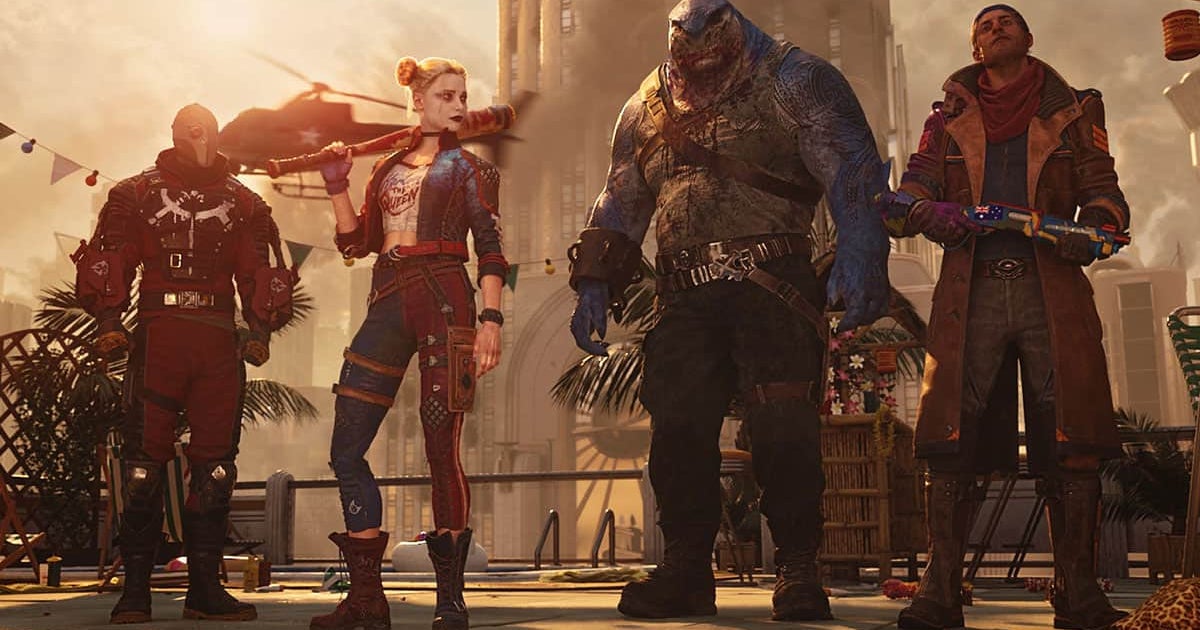## Warner Bros. Games Takes a Tumble: Did Hogwarts Ever Leave the Castle?
The gaming world is in constant flux, with empires rising and falling faster than a new Call of Duty release. But a recent report from GamesIndustry.biz has sent shockwaves through the industry: Warner Bros. Games revenue plummeted a staggering 48% in Q1 2025.

Long-Term Impact: Can These Titles Sustain Warner Bros. Games Through a Period of Transition?

Warner Bros. Games’ recent financial woes, with a 48% drop in revenue during the first quarter of 2025, raise concerns about the long-term sustainability of the company’s strategy. While the company emphasizes the continued revenue generation of titles like Hogwarts Legacy and Mortal Kombat 1, these success stories may not be enough to offset the decline caused by Suicide Squad: Kill the Justice League’s underperformance and the lack of new major releases.
The reliance on a handful of tentpole franchises, particularly in the current gaming landscape marked by evolving player preferences and the rise of independent studios, presents a significant challenge. Warner Bros. Games must carefully analyze the long-term viability of these franchises and explore avenues for diversification to ensure a stable and profitable future.
Restructuring for the Future: A New Focus for Warner Bros. Games
The Closure of Monolith and Other Studios: Understanding the Reasoning Behind These Difficult Decisions
The recent closure of studios like Monolith Productions, Player First Games, and Warner Bros. San Diego signals a drastic shift in Warner Bros. Games’ approach. While these decisions were undoubtedly painful, they reflect a strategic move to streamline operations and focus resources on high-potential projects.
The closure of these studios can be attributed to several factors, including the underperformance of certain titles, the need to consolidate resources, and the desire to prioritize development on core franchises. Gamestanza believes this restructuring is a necessary step for Warner Bros. Games to regain its footing in the competitive gaming market.
The Power of Four: Analyzing the Strategy Behind Focusing on Major Franchises Like Harry Potter and DC
Warner Bros. Games has explicitly stated its intention to concentrate on four key franchises: Harry Potter, Game of Thrones, Mortal Kombat, and DC. This strategic focus allows the company to leverage the immense global recognition and dedicated fan bases associated with these properties.
By investing heavily in these franchises, Warner Bros. Games aims to deliver high-quality, immersive experiences that capitalize on existing IP and generate significant revenue streams. The success of Hogwarts Legacy, which has already generated substantial revenue, demonstrates the potential of this approach.
Investing in the Future: How Warner Bros. Aims to Leverage Its Restructured Games Division
The restructuring of Warner Bros. Games is not merely about cost-cutting; it’s about positioning the company for future success. By streamlining operations and focusing on its most valuable assets, Warner Bros. aims to foster innovation and create high-impact games that resonate with gamers worldwide.
The company is likely to invest in emerging technologies, explore new gameplay mechanics, and experiment with diverse genres to ensure its continued relevance in the evolving gaming landscape. This commitment to innovation is crucial for Warner Bros. Games to recapture its position as a major force in the industry.
Beyond Games: The Diversification of Warner Bros. Entertainment
“The Super Mario Bros. Movie” Success: How This Box Office Juggernaut Reflects Warner Bros. Entertainment’s Broader Success
The phenomenal success of “The Super Mario Bros. Movie”, which grossed nearly $900 million worldwide, highlights the broader success of Warner Bros. Entertainment. The film’s triumph demonstrates the continued power of iconic intellectual property and the ability to translate beloved franchises into lucrative cinematic experiences.
This success story underscores the potential for synergy between Warner Bros.’ various entertainment divisions, including its games segment. The crossover appeal of popular franchises like Harry Potter and DC presents significant opportunities for expanding audiences and generating revenue across multiple platforms.
The Importance of Cross-Media: Examining the Potential for Synergy Between Movies, Games, and Other Entertainment Platforms
Warner Bros. Entertainment recognizes the immense value of cross-media synergy. Leveraging the popularity of its film properties to bolster its gaming division and vice versa creates a powerful feedback loop that amplifies brand awareness and drives consumer engagement.
This strategy involves promoting games based on popular movies, incorporating movie storylines into games, and developing shared universes that span multiple platforms. By blurring the lines between traditional entertainment mediums, Warner Bros. aims to create immersive experiences that resonate with audiences on a deeper level.
A Shift in Strategy: Is Warner Bros. Moving Away From Solely Relying on Its Games Division?
While Warner Bros. Games remains a significant part of the company’s overall entertainment portfolio, the recent restructuring and emphasis on cross-media synergy suggest a strategic shift towards diversifying revenue streams.
The company’s success in the film industry, particularly with franchises like Harry Potter and DC, indicates a willingness to prioritize entertainment ventures that offer greater financial stability and wider audience appeal. This doesn’t necessarily mean a decline in the importance of gaming; rather, it reflects a broader strategic approach that emphasizes the interconnectedness of different entertainment mediums.
Conclusion
The news from Warner Bros. Games is a stark reminder of the volatile landscape of the gaming industry. While their Q1 2025 revenue drop of 48% is undoubtedly concerning, it’s important to dissect the factors contributing to this decline. GamesIndustry.biz highlights the impact of delayed releases, a lack of major AAA titles, and the ongoing challenges of the mobile market. These factors, coupled with increased competition and evolving consumer preferences, paint a complex picture for the publisher.
This significant drop in revenue has wider implications for the industry. It raises questions about the sustainability of current business models and the need for publishers to adapt to dynamic market shifts. Will Warner Bros. Games be able to bounce back with a renewed focus on quality, innovation, and strategic releases? Only time will tell. However, this situation serves as a valuable lesson for all stakeholders – developers, publishers, and players alike – to recognize the ever-changing tides of the gaming world and prepare for the challenges that lie ahead. The industry is constantly evolving, and only those who can adapt and innovate will truly thrive.
Is this a blip on the radar or a harbinger of a larger trend? The coming months will be crucial in determining the future of Warner Bros. Games and what it means for the future of gaming itself.